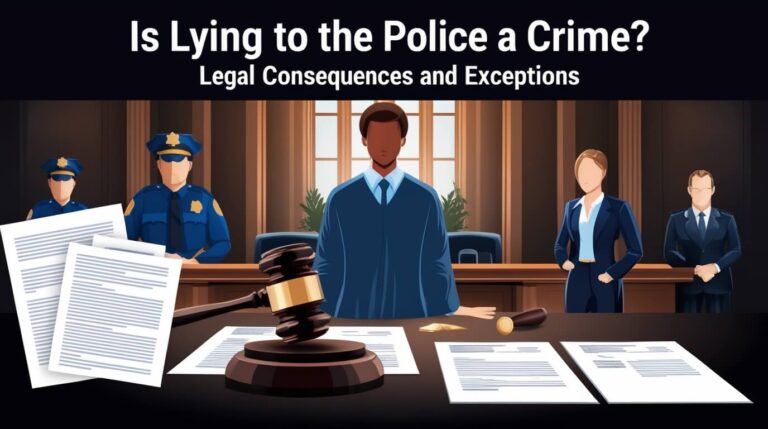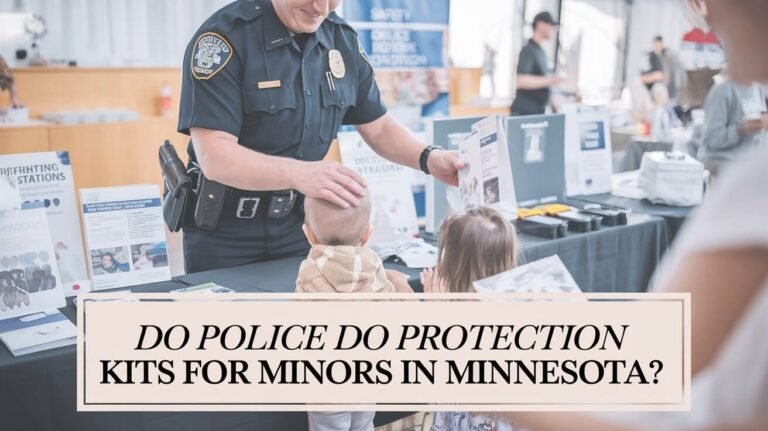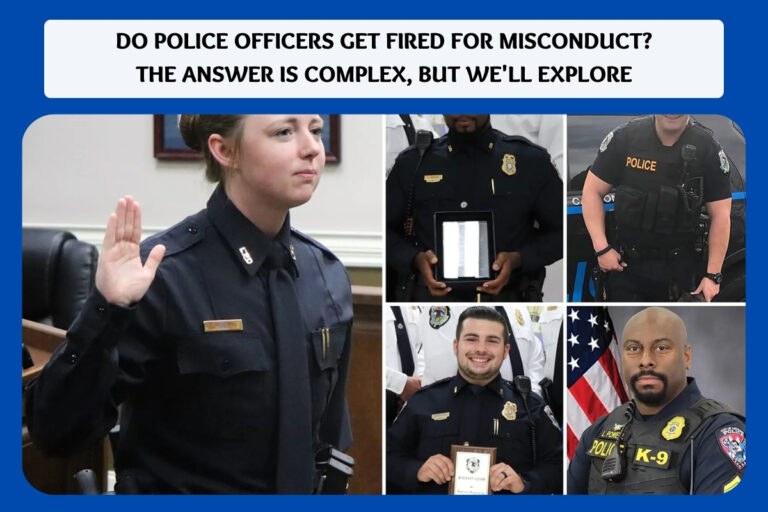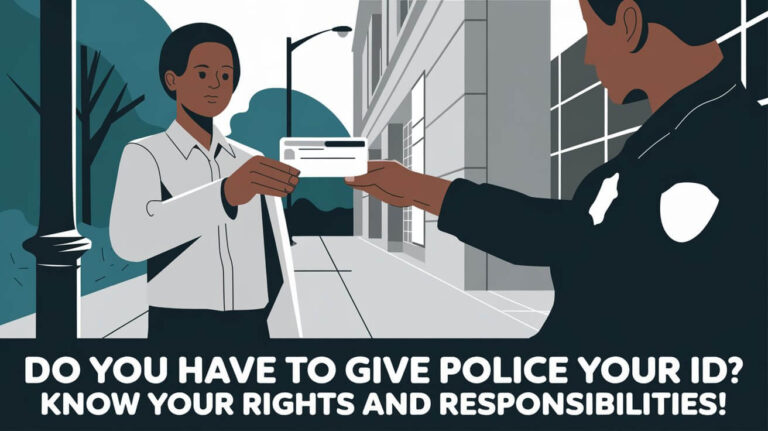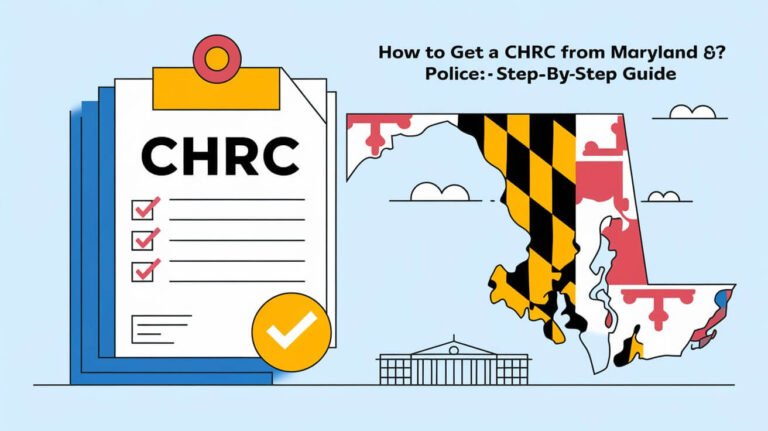Is Impersonating a Police Officer a Felony? Legal Facts
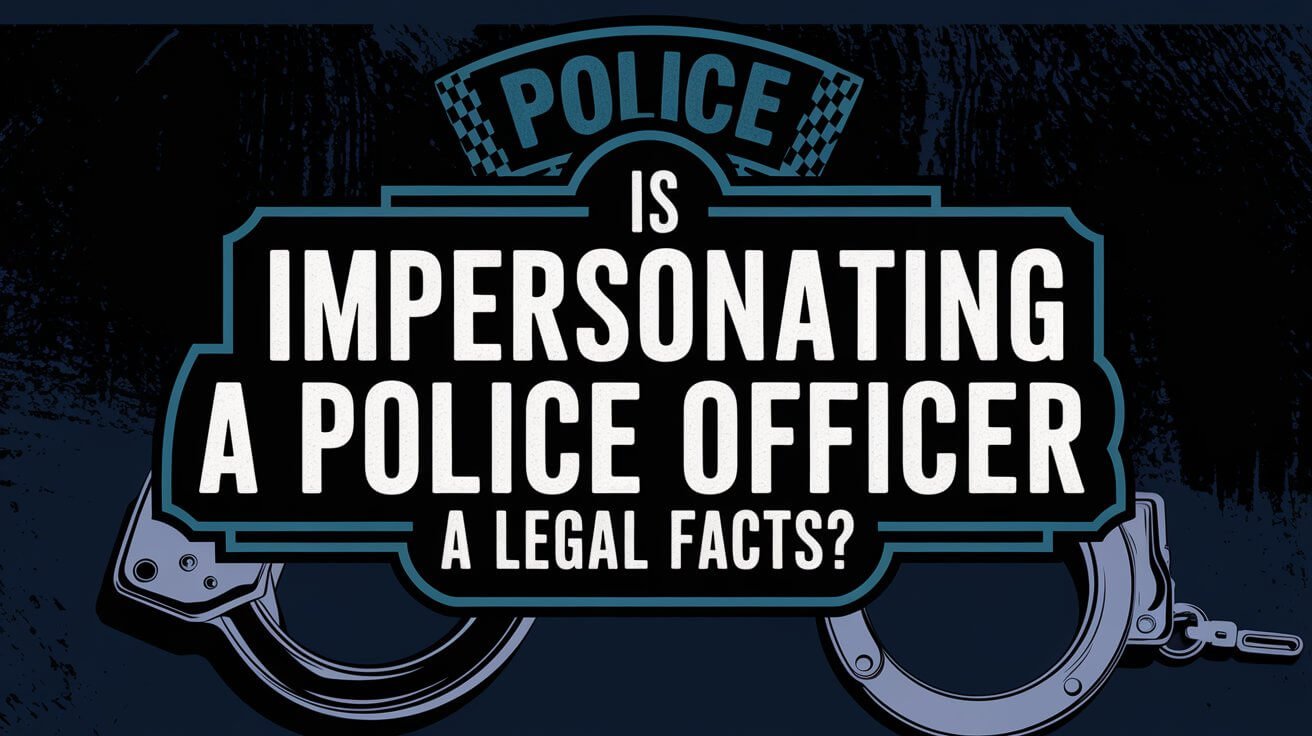
Impersonating a police officer is indeed a felony in many jurisdictions across the United States. This serious offense carries heavy penalties, including potential prison time and hefty fines. However, the exact classification and punishment can vary depending on the state and specific circumstances of the crime.
In this comprehensive guide, we’ll explore the legal ramifications of police impersonation, examine real-life cases, and provide crucial information on how to protect yourself from fake cops. We’ll also delve into the motivations behind this crime and its impact on society.
What Constitutes Police Impersonation?
Police impersonation involves pretending to be a law enforcement officer when you’re not. But it’s not just about wearing a uniform or flashing a fake badge. The crime typically requires an element of action or intent to deceive.
Common Examples of Police Impersonation
- Wearing a police uniform or displaying a badge without authority
- Using fake police lights to pull over drivers
- Claiming to be an officer to gain entry to a home or business
- Demanding money or favors while posing as law enforcement
Intent and Actions in Police Impersonation Cases
For a case to be considered police impersonation, there must usually be:
- A false representation of being a police officer
- An act performed in that fake capacity
Simply owning a police costume isn’t enough. The impersonator must use that disguise to act as if they have police authority.
Legal Classification: Felony or Misdemeanor?
The severity of the charge often depends on the specific actions taken while impersonating an officer. In many states, it’s classified as a felony due to the potential harm it can cause.
State-by-State Variations in Police Impersonation Laws
Let’s look at how different states treat this offense:
- Colorado: Class 6 felony, punishable by up to 18 months in prison
- California: Can be charged as a misdemeanor or felony, depending on circumstances
- New York: Class E felony, carrying up to 4 years in prison
Federal Laws on Impersonating Law Enforcement
At the federal level, impersonating a U.S. officer or employee is a felony under 18 U.S.C. § 912. This law applies to impersonation of any federal official, not just police officers.
Penalties for Impersonating a Police Officer
The consequences of a police impersonation conviction can be severe and long-lasting.
Potential Jail Time and Fines
Typical penalties include:
- 1-5 years in prison for felony convictions
- Fines ranging from $1,000 to $100,000 or more
- Probation and community service
Long-Term Consequences of a Conviction
Beyond immediate legal penalties, a conviction can lead to:
- Difficulty finding employment
- Loss of voting rights in some states
- Restrictions on owning firearms
- Damage to personal and professional relationships
Real-Life Cases of Police Impersonation
Examining actual cases helps illustrate the seriousness of this crime.
High-Profile Incidents and Their Outcomes
- In 2019, a Florida man was arrested for impersonating a police officer and conducting traffic stops. He received a 10-year prison sentence.
- A California woman faced charges in 2020 for impersonating an FBI agent to kidnap her boyfriend. She potentially faces decades in prison if convicted.
Lessons Learned from Police Impersonation Cases
These cases highlight the severe consequences and the various motivations behind police impersonation. They also underscore the importance of public awareness in identifying fake officers.
Why Do People Impersonate Police Officers?
Understanding the motivations can help prevent and identify instances of police impersonation.
Common Motivations Behind Police Impersonation
- Financial gain through theft or fraud
- Power and control over others
- Sexual predation
- Thrill-seeking behavior
Psychological Factors in Impersonation Cases
Some impersonators may suffer from conditions like:
- Antisocial personality disorder
- Narcissistic personality disorder
- Delusional disorder
However, many impersonators are simply opportunistic criminals seeking an advantage through deception.
How to Identify a Real vs. Fake Police Officer
Spotting a fake cop helps protect against impersonators.
Recognizing Authentic Police Credentials
Real police officers will have:
- Official badges and identification cards
- Marked police vehicles (in most cases)
- Knowledge of police procedures and local laws
Red Flags of Potential Police Impersonators
Be wary of:
- Officers who refuse to provide badge numbers or department information
- Requests for immediate payment of fines
- Unprofessional behavior or language
- Lack of official police equipment or vehicles
Legal Defenses in Police Impersonation Cases
If accused of impersonating an officer, there are several possible defense strategies.
Possible Defenses for the Accused
- Lack of intent to deceive
- Mistaken identity
- Insufficient evidence
- Mental health issues
Challenges in Prosecuting Impersonation Cases
Prosecutors must prove:
- The defendant knowingly impersonated an officer
- They acted in that false capacity
- There was intent to deceive or gain advantage
This can sometimes be difficult, especially in cases with limited physical evidence.
Impact of Police Impersonation on Society
The effects of police impersonation extend beyond individual victims.
Eroding Public Trust in Law Enforcement
When impersonation cases make headlines, they can:
- Decrease public confidence in real police officers
- Make people hesitant to comply with legitimate law enforcement
- Increase tension between communities and police departments
Measures to Prevent Police Impersonation
To combat this issue:
- Many departments are increasing public education efforts
- Some states are tightening laws on the sale of police-style equipment
- Law enforcement agencies are improving officer identification protocols
What to Do If You Encounter a Suspected Police Impersonator
Knowing how to react can keep you safe if you suspect you’re dealing with a fake officer.
Immediate Steps for Personal Safety
- Stay calm and don’t confront the person directly
- Ask for official identification and badge numbers
- If possible, call 911 to verify the officer’s identity
- If in a vehicle, drive to a well-lit, public area before stopping
Reporting Suspected Police Impersonation
If you believe you’ve encountered an impersonator:
- Contact your local police department immediately
- Provide as much detail as possible about the incident
- If applicable, file a written report for documentation
Conclusion: The Serious Nature of Police Impersonation
Impersonating a police officer is far more than just a prank or minor offense. It’s a serious crime that can result in felony charges, significant jail time, and lasting consequences. The act undermines public trust in law enforcement and can put innocent people in danger.
Understanding police impersonation, spotting fake officers, and knowing how to react helps fight this crime. Real police accept identity checks and respect your safety concerns.
If you ever find yourself in doubt about an officer’s authenticity, don’t hesitate to contact local law enforcement for confirmation. Stay informed, stay vigilant, and help maintain the integrity of our law enforcement system.

